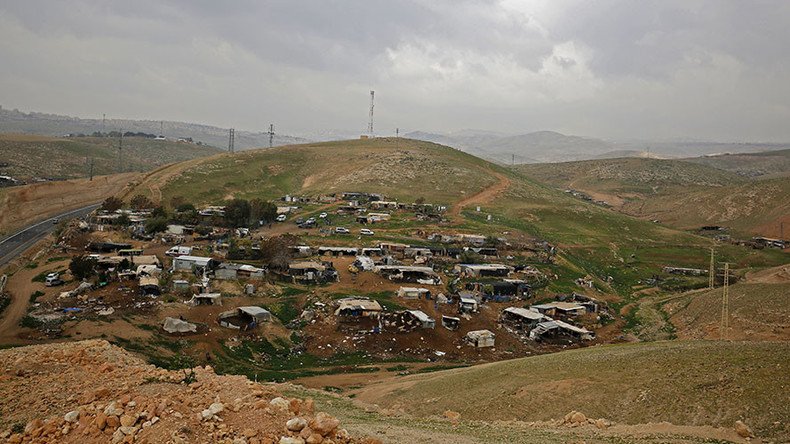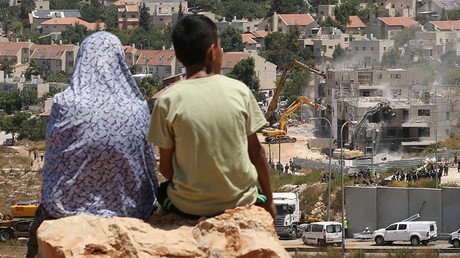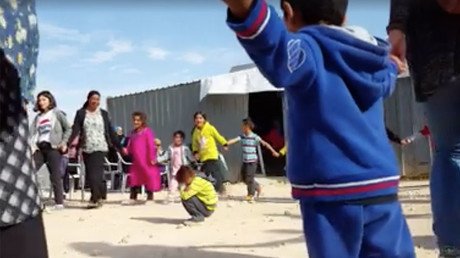EU slams ‘occupying power’ Israel over plans to demolish Bedouin village in West Bank

The European Union has delivered a public diplomatic rebuke to Israel, which plans to demolish 42 homes in a Bedouin village in the West Bank that are expected to make way for Jewish settlements, accusing it of breaking the Geneva Convention.
EU Ambassador to Israel Lars Faaborg-Andersen chose to voice the protest during a traditionally courteous introductory meeting between ambassadors of the 28 EU states and incoming Israeli Foreign Ministry director-general Yuval Rotem. As officials exchanged pleasantries in an upmarket Tel Aviv hotel, Faaborg-Anderson brought the room to a standstill to read a lengthy scathing message, approved by the EU’s security and diplomacy commission, with Rotem stood in the audience.
The Danish diplomat said that the demolition, ordered last month, of Khan Al-Akhmar, located east of Jerusalem in the West Bank's Area C, would result in the compulsory resettlement of about 140 residents, and the destruction of an Italian-funded school, which is providing education for over 150 children from the surrounding areas.
"The practice of enforcement measures such as forced transfers, evictions, demolitions and confiscations of homes and humanitarian assets (including EU-funded) and the obstruction of delivery of humanitarian assistance are contrary to Israel's obligations under international law,” said Faaborg-Andersen, whose comments were reported by Haaretz newspaper, which said that the incident happened last week, but was not reported until now.
"We therefore call on Israel, as the occupying power, to meet its obligations vis-à-vis the Palestinian population..., completely stop these demolitions and confiscations and allow full access of humanitarian assistance," added the EU envoy, who said that the demolition fell foul of “international humanitarian law and the 4th Geneva Convention.”
Despite the decision to raze a settlement that has existed in various forms for decades, Israel says that it is simply following its own regulations, as the houses in question were built without an official permit. The “tire school” – literally part-built from discarded tires - that has become a symbol of the demolition plan is actually not a part of it, as yet, and will have its fate reviewed by the legal system by the end of the year.
“Just as we did not approve illegal building by Jews in Amona, so we will not allow illegal construction by Palestinians,” explained Israeli Prime Minister Benjamin Netanyahu, when the visiting Italian foreign minister Angelino Alfano requested that the demolition be postponed last month.
While Khan Al-Akhmar is a small, impoverished settlement in what is already a deprived region, its significance is strategic. Israel is planning to construct a nearly-continuous belt of settlements around Jerusalem in Area C, the major part of West Bank which it completely control and administers, and the village is a likely building site.
Palestinian officials have complained that the plan would isolate East Jerusalem, which the Palestinian Authority views as its future capital, and will foil the creation of a contiguous Palestinian state in the West Bank.
Faaborg-Andersen addressed the issue, calling on Israel to stop demolitions in the West Bank, which climbed to a recent record of 876 last year, simplify the procedure for issuing building permits in Area C, and meet the humanitarian needs of the local population, including providing easier access to drinking water.
“The EU and EU member states are united in the view that Area C is of critical importance to the viability of a future Palestinian state… and the EU continues to support the right of development of Palestinian communities in Area C,” said the diplomat.














